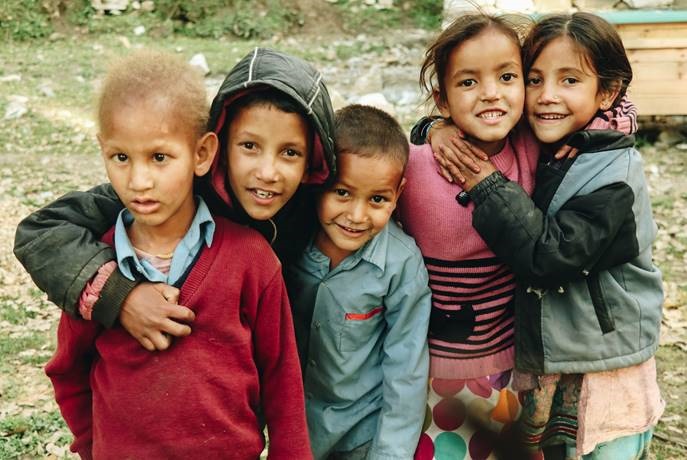
Humans have been migrating for millennia, and whether forced or voluntary, this trend is not slowing down.
According to UNICEF among the 244 million* international migrants who made a move in 2015, more than 21 million were refugees forcibly displaced from their own countries, and 10 million of these were children.
Most at risk
In Refugee Children: Guidelines on Protection and Care, the UNHCR recognises the need migrant children have for special care and assistance, detailing how:
Children are vulnerable
They are susceptible to disease, malnutrition and physical injury.
Children are dependent
They need the support of adults, not only for physical survival, particularly in the early years of childhood, but also for their psychological and social well-being.
Children are developing
They grow in developmental sequences, like a tower of bricks, each layer depending on the one below it. Serious delays interrupting these sequences can severely disrupt development.
Refugee children face far greater dangers
The document explains that refugee children face "far greater dangers to their safety and well being than the average child", and the "sudden and violent onset of emergencies, the disruption of families and community structures" and a shortage of resources, can "deeply affect the physical and psychological well being of refugee children".
The report continues "In the aftermath of emergencies and in the search for solutions, the separation of families and familiar structures continue to affect adversely refugee children of all ages."
Forced separation
Earlier this year the US was in the media spotlight when it was revealed that migrant children were being forcibly separated from their parents at the US-Mexico border, in line with US President Donald Trump's "zero tolerance" immigration policy.
Distressing images and videos of children being ripped from their parents arms were shared widely, and social workers, psychologists and doctors came out in protest, pointing out that this forced separation can have devastating long term consequences.
It is then even more disturbing to see local news headlines like:
Child ripped from woman's arms by police as refugees removed from UNHCR offices
and
Devastating long term consequences
Experiences like these are incredibly traumatic to children who already feel out of place in a foreign country, and research has shown that separating migrant children from their parents can cause long term damage.
Studies show that a separation of as little as a week between a mother and child within the first two years of life is related to higher levels of child negativity and aggression, and that multiples instances of childhood trauma can lead to mental health problems in adults.
Dr. Lyons-Ruth, a Professor of Psychology at Harvard Medical School, says that even very brief separations are stressful to infants and young children.
Damage to brain cells
In an interview on the topic of forced separation of migrant children from their parents in the US, she details how a child's sympathetic nervous system kicks in when they are separated from their parents.
She explains how this trauma impels them to try to cope with a separation by calling for the parent, crying, getting upset, and in general signaling that they need the parent back to be a source of security and safety and regulation.
This comes along with a flood of the stress hormone cortisol, which can trigger fight or flight. Prolonged exposure can be harmful, as it can damage brain cells. As Hippocampal cells die, a child's memory center is damaged. The more prolonged the separation, the worse the longer term outcomes will be.
The state has a direct responsibility
In her 2018 PhD thesis titled Experiences, challenges and coping strategies of Unaccompanied Migrant Children in South Africa: Guidelines for Social Work, social worker Memory Mathe describes how in South Africa the state "has a direct responsibility to provide care and protection for all children who do not have family care, including unaccompanied minor children".
Social workers are duty bound to ensure that the rights of children in South Africa, including those of refugee children, are met, and Mathe points out in her thesis that while the "Child Care Act specifies that migrant children have the same rights awarded to any South African child, reality has proven otherwise."
Police training on how to handle situations like these, and improved access to resources and assistance for social workers, is necessary to prevent further incidents like this.
If you have experienced this, or have insight or advice on this topic, please get in touch with us, and we could publish your mail. Anonymous contributions are welcome.
*UNHCR notes that “not all countries report information on the numbers of unaccompanied or separated children seeking asylum, most notably South Africa and the United States of America; thus it is very likely that the reported figure is an under-estimate.




 Publications
Publications
 Partners
Partners











